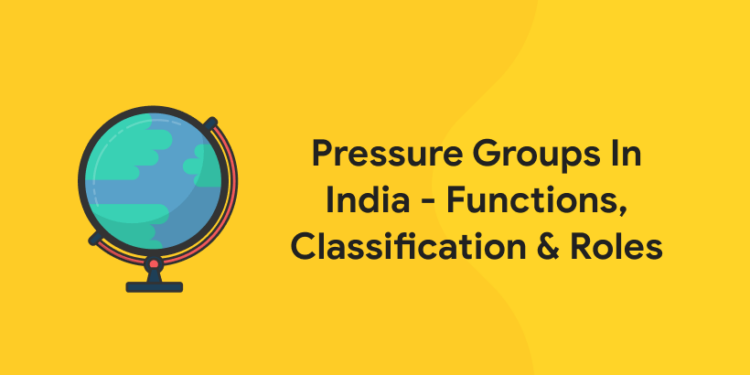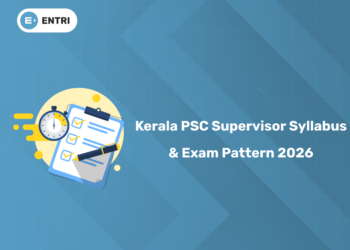Table of Contents
The pressure groups are an essential part of a democratic polity. Pressure groups are the organisations that attempt to influence government policies and decisions. They are formed when people with common interests, opinions and aspirations come together in order to achieve a common objective. Also a pressure group is a group of people who are organised actively for promoting and defending their common interest. It is called so, as it attempts to bring a change in public policy by exerting pressure on the government.
What are Pressure Groups?
- It is the stage where people can be directly involved in their interests.
- A group of people who are organized for the purpose of promotion and defense of their common interest is called the Pressure Group.
- Main Objective Pressure group is to It attempts to change public policy by generating pressure on the government. It is a bridge between the government and its members.
- Pressure groups are also called interest groups/vested groups.
- Pressure groups are not political parties, because they neither contest elections in order to get into power.
- Pressure groups are concerned with specific goals and objectives, in which they have common interests.
- And usually employed methods like legal and legitimate means – lobbying, correspondence, publicity, propagandizing, petitioning, public debating, maintaining contacts to influence policymakers.
Pressure Groups in India
1: Who was the first woman President of India?
In India Political parties and pressure groups together play a big role in the struggle of power. In India, the pressure group arose even during the colonial period.
- Business Groups – Federation of Indian Chamber of Commerce and Industry (FICCI), Maratha Chamber of Commerce and Industry (MCCI) (ASSOCHAM), Federation of All India Food grain Dealers Association, etc
- The Trade Unions – All-India Trade Union Congress (AITUC), Indian National Trade Union Congress (INTUC)
- Professional Groups – Indian Medical Association (IMA), Bar Council of India (BCI), IPS Association
- Agrarian Groups- All India Kisan Sabha, Bharatiya Kisan Union, Shetkari Sanghatana, etc
- Student’s Organisations- Akhil Bharatiya Vidyarthi Parishad (ABVP), All India Students Federation (AISF), National Students Union of India (NSUI)
- Religious Groups – Rashtriya SwayamSevak Sangh (RSS), Vishwa Hindu Parishad (VHP), Jamaat-e-Islami, etc.
- Caste Groups – Dalit Panther, Harijan Sevak Sangh, Nadar Caste Association, etc
- Linguistic Groups – Tamil Sangh, Andhra Maha Sabha, Sambhaji Brigade, etc
- Tribal Groups – National Socialist Council of Nagaland (NSCN), Tribal National Volunteers (TNU) in Tripura, United Mizo federal org, Tribal League of Assam, etc.
- Ideology based Groups – Narmada Bachao Andolan, Chipko Movement, Women’s Rights Organisation, India Against Corruption etc.
- Anomic Groups – Naxalite Groups, Jammu and Kashmir Liberation Front (JKLF), United Liberation Front of Assam (ULFA), Dal Khalsa, etc.
Attempt Free GK Mock test ! Download Entri App!
Free UPSKILLING Courses!
Take your first step toward mastering in-demand skills, acing interviews, and securing top-tier jobs with Entri's free upskilling courses.
Start Learning!Pressure Groups in India- Roles
Interest articulation: Pressure Groups convey the pursuits of the human beings to the eye of the policy-makers. The method with the aid of using which the needs of the human beings get materialized and get fashioned is known as interest articulation.
Political Socialisation: Pressure groups assist to carry out political socialization, as they direct the eye of the humans in the direction of political activity. These organizations play an essential element withinside the two-manner conversation bridge among the humans and the government.
Role in Administration: Apart from policymaking, the strain corporations additionally strive to persuade the coverage implementation. For that, they shaped the lobbies withinside the paperwork as well. The examples like making economic favor, ideological appealing, or helping in profession possibilities are a few strategies utilized by them.
Influences Judiciary: They additionally try to make use of the judicial approaches for shielding their interests. stress businesses frequently method the courtroom docket for redressal in their issues towards the kingdom and different businesses.
Role in public opinion: The pressure groups are frequently engaged in shaping all of the applicable laws, rules, decisions, and guidelines which might also additionally have a relation to the interest of these corporations. They facilitate a debate that confirmed all of the fine and bad elements of the problem and its outcomes on their hobbies.
Improves governance quality: Their efforts cause powerful participation of all sections of society in choice making. The early participation of all stakeholder assist governments the higher implementation of policy.
Improves accountability in rulers: The pressure groups assist competition events to construct positive grievance of presidency actions. It creates stress at the authorities to stay responsible for its actions.
Educating people on important issues: Being an casual supply of records and data, they supply crucial sources to human beings to recognize approximately the government. For example; The Pratham reviews on schooling fame assist human beings to come to be aware about the state of affairs of schooling in India.
Grab Study Materials to Strengthen your Knowledge in GK!! Register Here!
Pressure Groups in India- Functions
Pressure groups function for Government as a responsible source of criticism, for the political system as a conduit of communication between citizens and the Government, and for group members as a democratic means of expressing their opinions.
Pressure groups help in improving the quality of government. Consultation with affected groups is the rational way to make decisions in a free society. It makes government more efficient by enhancing the quality of the decision making process – the information and advice provided by these groups helps to improve the quality of government policy and legislation.
- Freely operating pressure groups are essential to the effective functioning of liberal democracy.
- They serve as a vital intermediary institutions between government and society
- They assist in the dispersal of political power
- They provide important counterweights to balance the concentration of power.
- Pressure groups enable new concerns and issues to reach the political agenda, thereby facilitating social progress and preventing social stagnation. For example, the women’s and environmentalist movements.
- Pressure groups increase social cohesion and political stability by providing a ‘safety-valve’ outlet for individual and collective grievances and demands.
- Pressure groups complement the work of opposition political parties by exposing the bad policies and wrongdoings of the government. Pressure groups thereby improve the accountability of decision makers to electorates.
- Pressure groups help to educate people, compile data and provide specific information to policy makers, thus they work as an informal source of information. Active constructive participation of numerous groups in polity helps to reconcile general interest with individual group interests.
Attempt Free GK Mock test ! Download Entri App!
Pressure Groups in India- Classification
Institutional Interest Groups:
These groups are officially organised which include professionally hired persons. They are part of authorities equipment and try and exert their influence.These corporations encompass political parties, legislatures, armies, bureaucracies, etc. Whenever such an affiliation increases protest it does so with the aid of using constitutional approach and according with the guidelines and regulations.
Example: IAS Association, IPS Association, State civil services association, Bar councils.
Associational Interest Groups :
These are organised specialized groups formed for Interest articulation, however to pursue confined goals. These encompass exchange unions, firms of businessmen and industrialists and civic corporations.
Examples: trade unions, business organizations etc.
Other examples of Associational Interest Groups in India are Bengal Chamber of Commerce and Industry, Indian Chamber of Commerce, Trade Unions such as AITUC (All India Trade Union Congress), Teachers Associations, Students Associations such as National Students Union of India (NSUI) etc.
Anomic Interest Groups:
The anomic pressure organization method a set that makes surprising breakthroughs into the politics from precise times like riots, demonstrations, assassinations, and the like.
Example: The movement India Against Corruption later transformed into lobbying in the Delhi Power structure.
Non-Associational Interest Groups:
These groups are primarily based totally on kinship and lineage, ethnic, regional, fame and class. They try and defend hobbies on the premise of individuals, families, and spiritual heads. Such companies basically have casual organizations.
Examples: caste groups, language groups, etc.
Attempt Free GK Mock test ! Download Entri App!
Free UPSKILLING Courses!
Take your first step toward mastering in-demand skills, acing interviews, and securing top-tier jobs with Entri's free upskilling courses.
Start Learning!Characteristics of Pressure Groups
Work for unique interest: The stress organization shaped to meet sure pastimes and for that reason address the electricity shape withinside the political systems.
Uses Modern and Traditional Means: They frequently finance political parties, sponsor applicants at some stage in elections and keep family members with bureaucracy. They additionally use conventional social realities as a method to advantage influence, like gambling caste cards, undertaking creed and non secular politics to sell their pastimes.
Fighting for restricted Resources: One of the important motives to shape a stress organization is the shortage of sources. In social life, there are constantly claims and counterclaims at the sources from numerous sections of society.
Inadequacies of Political Parties: In democratic politics, the political events are anticipated to steer the hobbies of all sections of society. As democracy is in the end a numbers game, many sections which have small populations discover it hard to have a political birthday birthday celebration for his or her very own cause. This vacuum is commonly stuffed via way of means of the formation of a strain group.
Reflects dynamic social alternate: Any alternate in social, economic, and political ends in disrupt the present order. In reaction to such adjustments many strain companies emerged. For example; the upward push of inexperienced political events as a reaction to environmental causes.
Attempt Free GK Mock test ! Download Entri App!
Download Entri App, Entri provides you effective learnings in a period of time with the help of expert teams and you can accomplish the goal with the Entri App. Start your preparation for your dream government job with Entri App. We provide a wide range of courses over different government exams. We are providing you the best platform for the preparations for every prestigious exam. Here you can get access to a number of mock tests and get daily practice GK and Current affairs questions.
For candidates preparing for competitive exams like Bank Exam, UPSC exam and other Government Exams. Static GK connotes general knowledge about the static facts, the facts that are never going to change in the future. Entri App provides you with the best knowledge in GK and coaches candidates on different exams in your local language.














